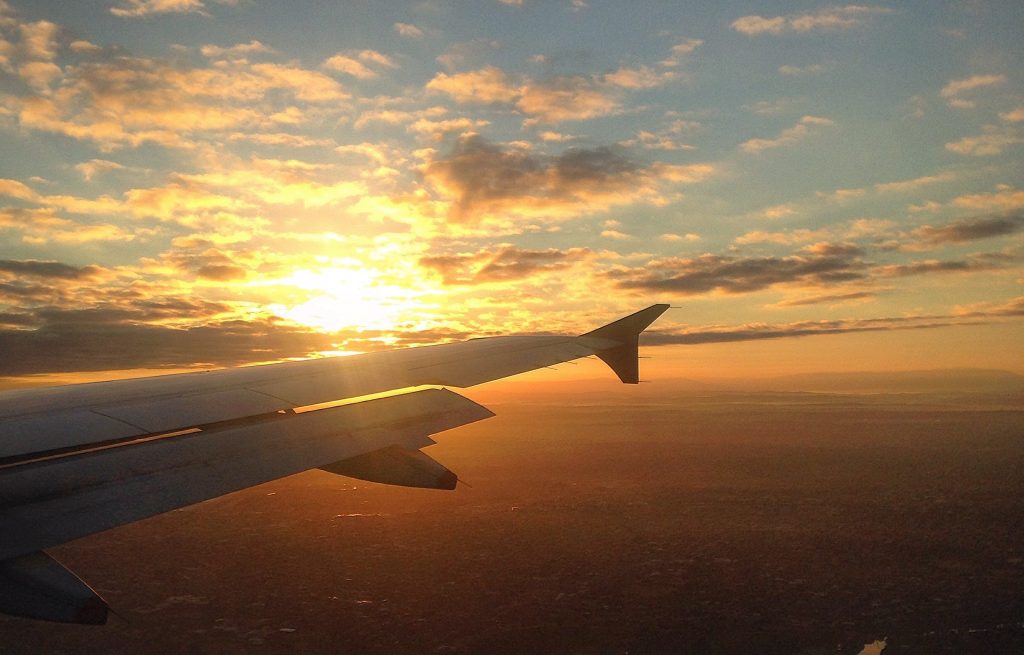Jetting off to explore the other side of the world was the most incredible decision and moment of my life! The next two years were filled with awesome adventures, wild rides and filled with the greatest and treasured memories. Having the freedom to up and leave on a whim. Blow money on fun adventures and embracing everyday with wide eyes and endless possibilities was the best part of travelling.
Making the decision to return home was hard but after two years on the road, I felt like it was time. I filled the idea of returning home with fantasies of exploring my home country. Working freelance and having a great summer with the friends and family I hadn’t seen in SO long. Basically, the life I had lived for the last two years travelling, was the life I wanted to bring home. What I didn’t realise was how difficult being ‘home’ was. I call this, Reverse Culture Shock.
What is Reverse Culture Shock?
The definition of Reverse Culture Shock is along the lines of “unexpected difficulty readjusting to the culture and values of your home country, now that the previously familiar has become unfamiliar.” (Thanks Investopedia) If only it were that simple. Of course us travellers love the unfamiliar, we like to explore, follow curiosity and embrace new cultures. So why, when ‘home’ becomes foreign do we struggle so much adjusting to it?
Coming home is at first exciting, catching up with friends and family is so precious but then, you realise, there’s not much else here. The homecoming is a short burst of excitement and then everyone else gets on with life. They go back to work, in jobs that are careers. They go back home to the house they have bought and talk about the babies and ‘grown up life’ they are expecting next.
The Feelings of Reverse Culture Shock
It comes in slowly, the sense that something is not quite right. It’s hard to determine whether it’s you or something else – apparently the longer you’re away the harder reverse culture shock hits.
The feeling is hard to describe; it’s like wandering around a familiar room, but there’s a think layer of fog in the room making everything look, different. You have a shiny suitcase of new things you want to show people. But they shy away from the sparkle, retreating into the fog.
You need to find where you fit and it’s like the first day of school all over again, but harder. There’s an array of emotions and feelings associated with reverse culture shock. For those of us who have been on big adventures, coming back from living in another country or simply coming back from the wilderness to the western world you’ve felt at least one of these feelings of reverse culture shock:
- Boredom.
- No one wants to listen to your adventures.
- You find it hard to explain…. well, everything.
- Reverse homesickness. ‘Home’ now feels like the countries you left behind rather than the one you’ve come back to.
- Relationships have changed, because you’ve changed.
- It feels as though people misunderstand you.
- You feel alienated.
- Your home country is not living up to your expectations.
- The incredible experiences you’ve had start to feel like they are fading.
- You aren’t as interested in hearing about what has happened at home as they are in telling you about it.
These all may seem like incredibly negative things, but they are honest. There are incredible high days when being home, with the people you love is amazing. But then the low ones sink in and these are the ones which hit harder. Expectation versus reality, is an incredibly sneaky misconception.
How to deal with Reverse Culture Shock
Coping with the feelings of reverse culture shock is hard. Take it from me, I’m certainly no expert right now, I’m still riding that rollercoaster but apparently, it gets better. The best advice I’ve taken is definitely keeping busy and finding new adventure wherever possible. But it’s not always easy to stay away from the flight websites and keeping yourself grounded.
So here are the best ten ways to help you deal with reverse culture shock:
1. Realise that you can’t change people
It’s no ones fault, it’s natural. No one’s life stopped because you went away, you all kept living and sometimes your lives go in different directions? This doesn’t mean you will come home to no one, you may come home too less or the same. But you will probably find that your interests have shifted, while your life was filled with spontaneity and adventure, there’s stable and secure but with their own adventures. Respect the fact that some of your interests have changed, not all of them, but some and it’s necessary to respect that to move on.
This to me is the hardest part of reverse culture shock. Feeling as though your experiences are melting into a distant memory you’ll never be able to relive. But remember, not everyone is interested in your experiences and that’s ok.
2. Talk about the experience, but respect not everyone wants to hear it.
You’re just home and everyone is asking how the experience was and you instantly jump to ‘where do i start’ or, ‘it was just so unbelievably awesome’ but then the conversation ends. There are just not enough words to describe to someone your experiences but equally, a lot of people who are asking, simply aren’t interested in hearing more.
3. Find people who DO want to hear all about your adventure.
So some people lose interest in your stories, not everyone will though! Being able to talk about the experience to anyone, whether they are simply interested or have had incredible adventures as well. Talking, to people who care, is incredibly important. You’ll get to relive all your favourite moments, laugh and catch up with them at the same time! So call up your friends, grab some wine and relive some awesome memories!
4. Write it down.
Ironic coming from a blogger. I’m not going to preach that you should start a blog and document your life with the world, but write it somewhere. Don’t bottle it all up inside that will make dealing with reverse culture shock a million times worse! Write about your adventures, your feelings or just anything. Whether this is in the form of a journal, an online blog or in letters, it will make you feel better. If you want to rant, rant.
You don’t have to be a top-notch writer to write, you don’t even have to write. Try painting, drawing or even making scrapbooks of your adventures. Be creative and fun, it’ll keep your mind busy and full of fun memories.
5. Keep in touch with the friends you met abroad.
I’ve travelled all over the world and met some incredible people along the way. Even though we are all in different places now, I constantly think about my awesome friends and regularly stay in touch. If you want to say hi, say hi. Who cares about the time zone?
Put together whatsapp groups, you can video chat from pretty much every social media platform and use Facebook. Or hey, maybe even send an old-fashioned letter!
6. Get out the house and your pyjamas.
The worst thing you can do is sat in the house, in your pyjamas because you have nowhere to be and nowhere to go. There’s always somewhere better you can be and something you can do. So get up, get dressed, get out there and discover what’s around you. Fresh air will do you the world of good, even if it’s just around the corner to the local coffee shop or a walk along the beach. Get out the house and remember the world is huge.
7. Set goals and move on.
The memories are beautiful to share and think about. Sadly, they are in the past and life moves on. It sounds harsh and cold – yep, I can’t even believe I’m saying this – but life moves forward not backwards. Don’t take it for a second that I’m saying you have to forget about the incredible memories you’ve made. But start to look into the future, make some goals and pursue them wildly.
Create new adventures and follow your passions, don’t just dwell on the memories you now miss.
8. Start a new routine and stick to it
Have you always had a constant, even while off adventuring? Well keep it constant now you’re home too. If that’s a morning run every day, an evening stroll or yoga on the beach. Find a way to keep it going. Why? Well this will keep some kind of familiarity for you and keep you grounded while you adjust to being home.

9. Try new things and find new adventures.
So you tried kayaking once when you were travelling and loved it. Why not find a club near by and join them? Discovered you really like painting, join an art class – do you see where I’m going with this?
Follow your passions and interests; you’ll meet more and new people. You’ll try new things and have some fun. This will keep your adventurous life active even while at home and that is really, the best way to get through reverse culture shock. – Or at least I think so!
10. Look at the positives.
It may look dreary now but step back and look at the big picture. You have just come back from an incredible adventure most people will never had. You have now (probably) chosen to come home for your own reasons. Remember these. You have incredible people around you and the skills and experiences you’ve got from your adventures are invaluable.
Keep your chin up, get outside and explore your hometown. The dark days will move on.
Stories off the rollercoaster
The rollercoaster of reverse culture shock is not always a fun one to ride. There will be highs and lows but ultimately, I’m holding on and praying that when it stops it’ll all feel better. Why? Well these girls certainly got off the rollercoaster okay after experiencing reverse culture shock. It’s different for everyone, check out Carole and Eemma’s experience when they came home after adventuring.
Carole Terwilliger Meyers: “I experienced real culture shock a few years ago when I returned from Ireland and our van driver from the airport went into one of our few roundabouts–in the wrong direction (to the right)! I screeched and thought it was all over. This after two weeks of navigating my husband into roundabouts running left, plus a very long, tiring flight.”
Eemma Iseman: Advertising has us chasing cars and clothes, working jobs we hate, so we can buy shit we don’t need.” – Chuck Palahniuk, Fight Club
“As an expat living in Mexico, I have had multiple instances of reverse culture shock when I returned home to the USA. I think the first time returning home had the biggest impact. After being outside of the USA for a few months I went to a Goodwill with my sister, which I’ve been to a million times, but this time I was astounded at just the amount of crap that people buy and give away. After some recent research, I found that the US citizen throws away 70 lbs of clothing and other textiles annually and then goes and buys more new stuff that they don’t need. Ever since this situation I have really started to think about US consumer culture and living in Mexico has allowed me the distance to step back and analyse my life and make changes where they are needed.
It has been freeing to live out of the country so that I can take a step back and analyse my life and difficulties with consumerism.”
When was the last time you returned home from an epic adventure?
Did you struggle to slot back in at home, or did you just have a funny ‘too tired’ experience like Carole? Let me know your experience of Reverse Culture Shock in the comments below, or pop me an email. I’d love to hear your stories!
If you like this! Please help me get it out there by sharing this post with EVERYONE you know – or you know, just one person is cool too.



